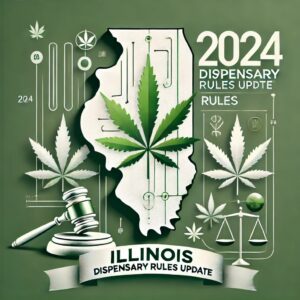Connecticut Cannabis Establishment License: How to Apply
In February of 2021 Gov. Ned Lamont proposed a legislation that would permit the sale and possession of recreational marijuana in Connecticut, starting in 2022 and relying on the existing infrastructure of medical cannabis producers and dispensaries for a fast start while also offering opportunity to newcomers.
Gov. Lamont’s 2021 proposal – S.B. 888 — would legalize possession up to one and a half ounces for persons over the age of 21, with legal sales beginning on May 2, 2022. The bill would also decriminalize possession of up to two and a half ounces.
Persons with convictions for cannabis possession under four ounces prior to October 1, 2015 would have their records automatically expunged. Persons with possession convictions for less than four ounces after October 1, 2015 would be allowed to petition the court for expungement at no cost.
Under the bill, an Equity Commission would be charged with developing recommendations by November 15, 2021 on a number of issues, including qualifications for equity applicants and distribution of a portion of tax revenues to support residents in communities disproportionately harmed by cannabis prohibition.
Types of Connecticut Cannabis Establishment Licenses
According to S.B. 888, there would be eight types of Connecticut cannabis establishment licenses, namely:
- Retailer
- Hybrid retailer
- Cultivator
- Micro-cultivator
- Product manufacturer
- Food and beverage manufacturer
- Product packager
- Delivery service
Number of Licenses
The total number of licenses solicited by the DCP in the first round are as follows (as broken down by number available to both the social equity and general license pool):
- Retailer: 6 general licenses, 6 Social Equity licenses
- Micro-cultivator: 2 general licenses, 2 Social Equity licenses
- Delivery Service: 5 general licenses, 5 Social Equity licenses
- Hybrid Retailer: 2 general licenses, 2 Social Equity licenses
- Food and Beverage: 5 general licenses, 5 Social Equity licenses
- Product Packager: 3 general licenses, 3 Social Equity licenses
- Product Manufacturer: 3 general licenses, 3 Social Equity licenses
- Transporter: 2 general licenses, 2 Social Equity licenses
Applicants for cannabis establishments licensed under the following provisions are not subject to the lottery process:
- Currently licensed medical marijuana producers converting to engage in the adult-use cannabis market
- Currently licensed medical marijuana dispensary facilities converting to a hybrid retailer license to allow for the sale of cannabis for both medicinal and adult-use
- Applications for social equity cultivators located in a Disproportionately Impacted Area that meet the requirements outlined in Section 149 of Public Act 21-1 of the June 2021 Special Session
- Applicants applying for a cannabis establishment license as an Equity Joint Venture or Social Equity Partner with a licensed medical marijuana producer or dispensary facility
- Social Equity Council Micro-Cultivator Assistance Program (to be developed by the Social Equity Council)
Fees to apply for a Connecticut Cannabis Establishment License
Existing Dispensaries Adding Adult-Use to Become Hybrid Retailers
- $1 million fee which can be reduced to $500,000 if they create one “equity joint venture” for an existing medical dispensary facility to also sell adult-use as a hybrid retailer
Existing Producers (Growers/Processors)
- $3 million fee which can be reduced to $1.5 million if they create two “equity join ventures” which cannot be cultivators
- $500,000 fee paid to the social equity account (or provide 5% of their grow space to a social equity applicant who they mentor for five years, cover all of the social equity applicant’s business costs, and give 100% of the profits to the social equity applicant)
The license fees for different license types in the Adult Use Cannabis program are as follows:
| Non-Social Equity Fees | Social Equity Fees | |||||
| Name | Lottery | Provisional | License | Lottery | Provisional | License |
| Cultivator | $ 1,000 | $ 25,000 | $ 75,000 | $ 500 | $ 12,500 | $ 37,500 |
| Micro-cultivator | $ 250 | $ 500 | $ 1,000 | $ 125 | $ 250 | $ 500 |
| Retailer | $ 500 | $ 5,000 | $ 25,000 | $ 250 | $ 2,500 | $ 12,500 |
| Product Manufacturer | $ 750 | $ 5,000 | $ 25,000 | $ 375 | $ 2,500 | $ 12,500 |
| Food and Beverage | $ 250 | $ 1,000 | $ 5,000 | $ 125 | $ 500 | $ 2,500 |
| Delivery/Transport | $ 250 | $ 1,000 | $ 5,000 | $ 125 | $ 500 | $ 2,500 |
| Product Packager | $ 500 | $ 5,000 | $ 25,000 | $ 250 | $ 2,500 | $ 12,500 |
| Hybrid | $ 500 | $ 5,000 | $ 25,000 | $ 250 | $ 2,500 | $ 12,500 |
*Lottery and license application fees are non-refundable.
In the lottery, every entrant will get a numerical ranking, including those who are not initially selected. After the lottery selects applicants, the Social Equity Council will verify that the winners qualify as a social equity applicant — without having any identifying information. If an applicant does not qualify, they will be entered into the open lottery provided they pay the other half of the lottery fee. For any applicant that does not qualify, the lottery operator will identify the next-ranked applicant who will then be reviewed.
The bill requires that all applicants selected in the lottery and not disqualified be provided a provisional license application.
Applicants must complete their applications within 60 days after they receive it, and the right to apply for a provisional license is nontransferable.
A provisional license expires after 14 months and is not renewable. A provisional licensee may apply for a final license during the initial application period. Final license application requires:
- A contract with an approved seed-to-sale vendor in accordance with the bill’s provisions;
- A right to occupy the location where the cannabis establishment will be located;
- Any necessary local zoning approval for the cannabis establishment;
- A social equity plan;
- A workforce development plan;
- Written policies for preventing diversion and misuse of cannabis and sales to underage persons;
- All other security requirements set forth by the department based on the specific license type;
- A labor peace agreement entered into between the cannabis establishment and a bona fide labor organization; and
- A certification that they are using a project labor agreement for construction projects of $5 million or more.
Only cannabis establishments with approved final licenses can begin operations.
Social equity licenses cannot change ownership to non-social equity applicants until three years after final licensure, except in specific cases such as death or illness.
RELATED POST: MAINE MARIJUANA LICENSE: HOW TO APPLY
RELATED POST: CANNABIS SPAC
How to apply for a Connecticut Cannabis Establishment License?
For each type of license, there will be two lotteries held to pick applicants:
- Social equity lottery
- General lottery
At least half of the licenses will go to applicants who qualify as Social Equity Applicants for each license type. To qualify as a social equity applicant, the individual who is applying for the cannabis establishment license must own or control at least 65 percent of the business and meet the income and residency requirements outlined in the law.
A Social Equity Applicant is somebody who:
- Had an average household income of less than three times the State median household income over the last 3 tax years; AND,
- Was a resident of a disproportionately impacted area for at least 5 of the past 10 years; OR
- Was a resident of a disproportionately impacted area for at least 9 years before the age of 18.
For the social equity lottery:
- Applicants who apply for the lottery must pay the lottery fee and put on their lottery application that they are applying as a Social Equity Applicant.
- Those who are applying as a Social Equity Applicant will be assigned a number and entered into the social equity lottery.
- An outside lottery operator will run the lottery for the social equity applicants. The lottery operator will not know which numbers have been assigned to which applicants.
The lottery operator will run the lottery and provide DCP with the lottery rankings.
Once the social equity lottery has been run, DCP will share the lottery winners with the Social Equity Council. The Social Equity Council will look at the information submitted and decide if the applicants picked in the lottery qualify as a social equity applicant.
- If applicant qualify as a social equity applicant, a background check will be run.
- If the applicant does NOT qualify as a social equity applicant, the applicant can pay the difference for the full lottery fee and have their application entered into the general lottery. If the applicant does not pay the full lottery fee, their application will not be entered into the general lottery and the application process will end. Another application will be picked from the social equity lottery.
Once all of the social equity applicants have been chosen, a general lottery will be run. The general lottery will include:
- Applicants who are not social equity applicants and have paid the full lottery fee.
- Applicants who were picked in the social equity lottery, but
- Did not qualify as a social lottery applicant, and
- Paid the difference for the full lottery fee.
- Social equity applicants who were not picked in the social equity lottery.
Like the social equity lottery, the general lottery will be run by an outside operator. Lottery applicants will be picked until the Department has filled all of the available licenses for each license type.
Social Equity Program
DCP must reserve 50% of the maximum number of applications that must be considered for eligible license types for social equity applicants.
Social equity applicants receive a 50% reduction in license fees for the first three renewal cycles.
A “Social equity applicant” means a person that has applied for a license for a cannabis establishment, where such applicant is at least sixty-five per cent owned and controlled by an individual or individuals, or such applicant is an individual, who:
(A) Had an average household income of less than three hundred per cent of the state median household income over the three tax years immediately preceding such individual’s application; and
(B) (i) Was a resident of a disproportionately impacted area for not less than five of the ten years immediately preceding the date of such application; or
(ii) Was a resident of a disproportionately impacted area for not less than nine years prior to attaining the age of eighteen;
A disproportionately impacted area is a census tract that has either an unemployment rate of over 10% or that has a high rate of drug arrests over the past 40 years. The Social Equity Council can add additional criteria to the definition.
Department employees, Social Equity Council members, legislators, and statewide office holders do not quality as “social equity applicants” and have a two-year buffer after their service when they cannot quality.
The Social Equity Council, by October 1, 2023, is required to report to the governor and Judiciary Committee on arrest and conviction data for cannabis possession, including a breakdown by town, race, gender, and age.
- Expands the Angel Investor Tax Credit to allow investors to claim a 40% income tax credit for credit-eligible investments in these businesses, imposes a $15 million per fiscal year cap on these credits.
- Establishes a Cannabis Business Accelerator program to provide technical assistance to accelerator licensees by partnering social equity licensees who wish to participate with a cannabis establishment. It may partner with a unit of a state college or university to create the program.
- Requires the Social Equity Council to partner with regional workforce development boards to develop workforce training boards, partner with training providers, and create apprenticeship programs across the state.
Taxes for Connecticut Cannabis Establishments
The bill would levy a wholesale tax of $1.25 per dry weight gram of flower, $.50 per dry weight of cannabis trim, and $.28 per gram of wet weight cannabis, in addition to the state sales tax of 6.25%. Municipalities could also levy up to a 3% tax at the point of sale.
TIMELINE:
The first application period for each license type will open for a period of 90 days on the following dates:
· Disproportionately Impacted Area Cultivator: February 3, 2022 (non-lottery)
· Retailer: February 3, 2022
· Micro-cultivator: February 10, 2022
· Delivery Service: February 17, 2022
· Hybrid Retailer: February 24, 2022
· Food and Beverage: March 3, 2022
· Product Manufacturer: March 10, 2022
· Product Packager: March 17, 2022
· Transporter: March 24, 2022
If you want more information regarding what could you do in order to enter the cannabis industry in Connecticut, don’t hesitate to contact us.
RELATED POST: MAP OF MARIJUANA LEGALITY BY STATE
RELATED POST: NEW JERSEY DISTRIBUTOR LICENSE





